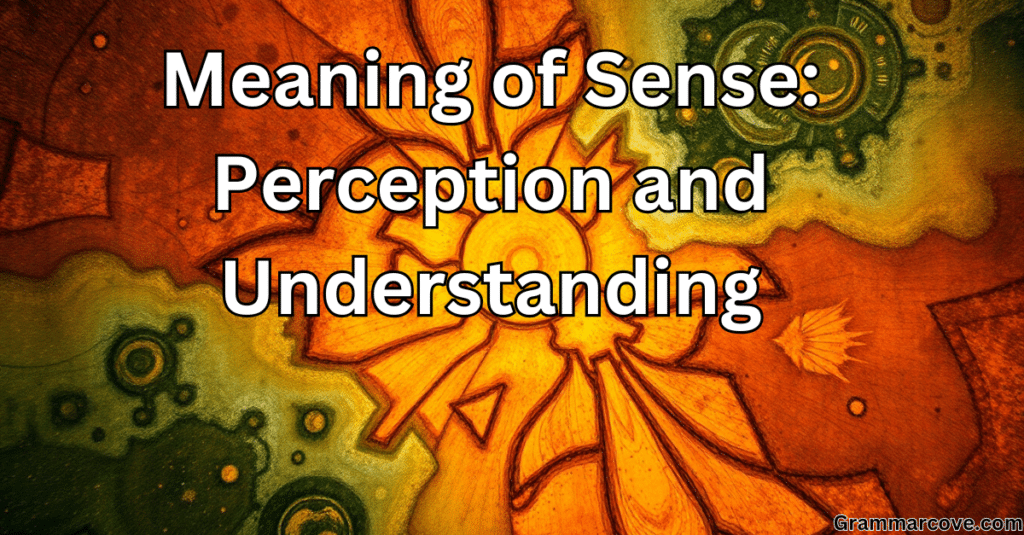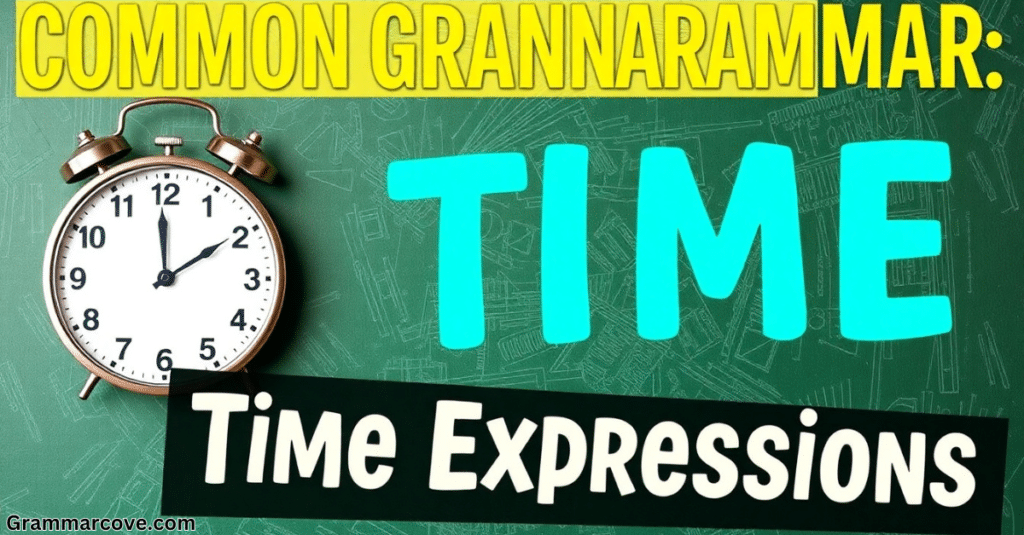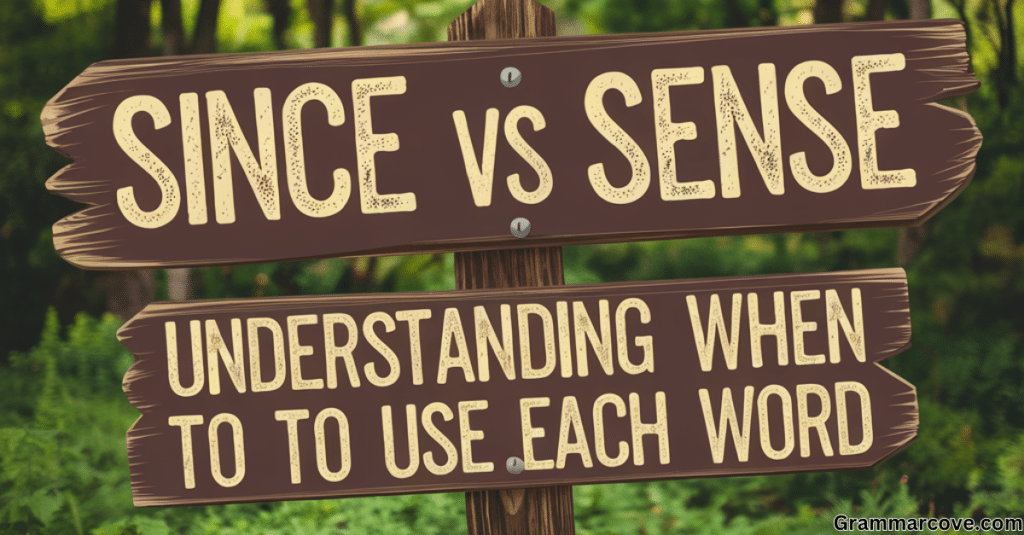The English language is full of subtle nuances, and it’s easy to get confused by similar-sounding words. Two such tricky words, “since” and “sense,” frequently appear in the since-vs-sense debate, causing confusion even for experienced writers and speakers. While they may seem related at first glance, their meanings, uses, and grammatical roles are entirely distinct.
This article will explore the difference between since and sense, and offer practical guidance on when to use each one correctly.
Meaning of Since: A Time Reference
The word since is primarily related to time. It indicates that something began at a certain point in the past and continues into the present. It’s typically used to refer to a specific point in time. Since can function as a conjunction, preposition, or adverb.
Since Definition and Usage
Let’s look at how since functions in sentences.
- As a preposition, since marks the beginning of an action or event.
- Example: “I have lived here since 2010.”
This tells us that the action of living here started in 2010 and continues to the present.
- Example: “I have lived here since 2010.”
- As a conjunction, since connects two clauses, often indicating the time when something happened.
- Example: “I haven’t seen her since she left for Paris.”
This connects the fact of not seeing her with the specific point in time when she left for Paris.
- Example: “I haven’t seen her since she left for Paris.”
- As an adverb, since can show a period of time that has passed.
Common Grammar Confusions: Using “Since” Correctly
People often mix up since and for or ago because all three refer to time, but they’re used in different ways.
- Since is used to indicate the starting point of an action or event.
- “I’ve known Sarah since high school.”
- For refers to the duration of time.
- “I’ve known Sarah for 10 years.”
- Ago is used to express time in the past relative to the present.
- “I met Sarah 10 years ago.”
It’s important to remember that since refers to a specific point in time, not a duration.
Example 1: Email
Subject: Update on the New Marketing Strategy
Dear Emily,
I just wanted to share some progress on our new marketing strategy. We’ve been working on it since the start of the quarter, and we’re now in the final stages of planning.
Let me know if you need anything else!
Best,
James
In this example, since indicates the starting point of the work on the marketing strategy, which was the beginning of the quarter.
Meaning of Sense: Perception and Understanding

Unlike since, the word sense isn’t related to time. It refers to perception, intuition, or understanding. It can also refer to the physical senses (sight, hearing, touch, taste, smell), or to a logical or emotional understanding of something.
Sense Definition and Examples
Sense has several meanings, depending on whether it’s used as a noun or a verb.
- As a noun, sense refers to physical perception or intuition.
- Example: “I lost my sense of direction while walking through the city.”
- As a noun, sense can also refer to intelligence, reason, or understanding.
- Example: “That decision didn’t make much sense.”
This indicates a lack of logic or reason in the decision.
- Example: “That decision didn’t make much sense.”
- As a verb, sense refers to detecting or perceiving something.
- Example: “I can sense the excitement in the room.” Here, sense implies that you are perceiving something emotionally or intuitively.
Example 2: Email
Subject: Clarification on New Policy
Dear Mark,
I’ve reviewed the new policy document, and I’m not sure I fully sense the direction it’s taking. Can you clarify whether we’re focusing on expansion or consolidation?
Thanks,
Anna
In this case, sense refers to understanding the direction or purpose of the policy.
Since vs Sense: Key Differences
It’s crucial to understand when to use since and sense correctly. While they might seem similar because they’re pronounced in a similar way, their meanings and applications are very different.
When to Use Since
Since is primarily used when you’re talking about time. It indicates the starting point of an event or action that continues into the present. Since can also be used to show causality, as in “because” or “as.”
- Example: “I’ve been learning French since 2015.”
- Example: “I didn’t go to the meeting since I wasn’t feeling well.”
When to Use Sense
Sense, on the other hand, relates to perception or understanding. It’s used to refer to both the physical senses and the mental or emotional understanding of a situation.
- Example: “He has a good sense of humor.”
- Example: “I can sense that something’s wrong.”
Table: Quick Reference for Since vs Sense
| Criteria | Since | Sense |
|---|---|---|
| Meaning | Refers to a point in time or a starting point. | Refers to perception, understanding, or awareness. |
| Part of Speech | Preposition, conjunction, or adverb. | Noun or verb. |
| Usage | Indicates time or cause. | Refers to perception (physical or emotional) or logical understanding. |
| Example 1 (Time) | “I have lived here since 2010.” | N/A |
| Example 2 (Perception) | N/A | “I could sense the tension in the air.” |
| Example 3 (Understanding) | “We’ve been friends since high school.” | “It doesn’t make sense to invest in this market right now.” |
| Common Confusions | Confused with “for” (duration) or “ago” (past). | Confused with “feeling” or “intuition.” |
Common Grammar Confusions: Time Expressions with Since

When we use since, it’s important to recognize the types of time expressions that are common. Here are a few examples:
- Since Monday
- Since last year
- Since the meeting
- Since 1995
Remember, since refers to the starting point of an event or action, and it’s typically followed by a specific moment in time (e.g., a date, day, or event).
Example 3: Email
Subject: Follow-Up on Client Meeting
Dear John,
I just wanted to follow up on our client meeting. We haven’t received any updates since we last spoke last Tuesday. Could you let us know if there have been any developments?
Best,
Sara
In this email, since is used to refer to the time that has passed since the meeting.
Sense: Perception and Intuition
Sense can also describe something more abstract, such as a feeling or intuition about a situation. We use it to convey a deeper awareness or understanding of a context, sometimes without any clear reasoning.
Perception and Understanding with Sense
The word sense often refers to the perception of the world around us. It can also refer to intuition or gut feelings. For instance:
- Example: “I can sense that something good is going to happen today.”
- Example: “His actions don’t make any sense to me.”
Grammar Guide for Similar Words
Some other similar-sounding words can sometimes cause confusion as well, such as since vs when, sense vs feeling, and so on. It’s helpful to keep their meanings straight to avoid errors:
- Since: Refers to a starting point of time.
- Sense: Refers to perception or understanding.
Synonyms for Since and Sense
Expanding your vocabulary is key to becoming more versatile in English. Let’s look at some synonyms for since and sense:
Synonyms for Since:
- From
- After
- As of
- Beginning
Synonyms for Sense:
- Feeling
- Perception
- Awareness
- Intuition
- Insight
These synonyms can help you avoid repetition in your writing and give your sentences more variety.
Conclusion: Mastering Since vs Sense
Now that you understand the difference between since and sense, you’re well-equipped to use both words correctly in your writing and speech. Remember:
- Since is used to refer to a point in time, marking the start of an action or event.
- Sense refers to perception, intuition, or understanding.
With these simple distinctions in mind, you’ll be able to express yourself more clearly, avoid common grammar mistakes, and make your communication more precise and effective.
By practicing and applying these grammar tips, you’ll quickly master the use of since and sense and be able to choose the right word for the right situation. Keep these guidelines in mind and continue improving your English skills—soon enough, you’ll be using since and sense like a pro!


